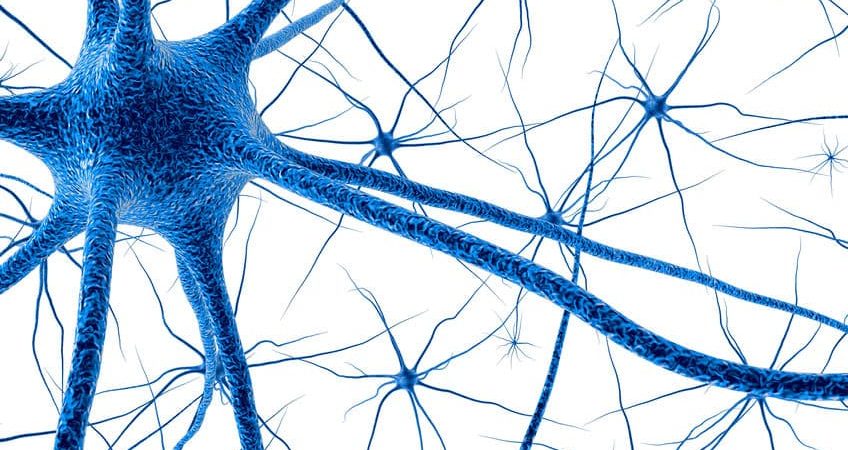Table of Contents
Entering the world of eating to live and not vice versa: healthy choices that lead to a better life
All the humans in the world must eat to live and be healthy. However, still there are lots of questions pertaining the amount and quality of food, and long discussions about how to find balance and how to avoid eating disorders. This ADHD-BED article describes the most important facts about hunger, the way of eating, mindful nutrition, and practical eating habits that will help to make healthy choices. In fact, the balance in fuelling everyday life will make big changes, allowing us to stay full and have positive emotions from different sources in life, such as sports, nature, and relationships.
What is hunger from psychology point of view?
There are different definitions of the term “hunger”. The most known is global hunger when people die in pain without food, usually in special circumstances such as poverty, war, or genocide.
From the physical point of view, hunger is a symptom of a network of physiological and hormonal signals. The brain, neurological system, pancreas, stomach, and the remainder of the gastrointestinal tract are just a few of the bodily organs that are involved. Ghrelin and leptin are the two main hormones involved in hunger signalling. Ghrelin, a hormone that enhances hunger, gastric motility, and gastric acid secretion when you have not eaten in a while, is produced by the stomach and, to a lesser extent, other parts of the digestive system.
Ghrelin stimulates the production of stomach acid, gastric motility, and appetite. The hour before meals, when the blood sugar is low and the stomach is empty, ghrelin levels are at their peak. On the other side, after enough of food is eaten, fat cells release leptin, which communicates with the brain to tell it to stop responding to hunger signals since enough calories are stored.
In normal circumstances, this system works well. However, there is a lot of research on how the brain can be tricked by the illusion of a desire for more food. This can lead to bad habits and severe eating disorders that can cause a lot of problems with health and life quality.
In the modern society of developed countries nowadays hunger is more and more discussed from the psychological point of view. To cut the long story short, this is when people eat without the obvious need. Consuming food just for fun and because of boredom has become a real problem for modern mankind.
What is the difference between ‘eat to live’ and ‘live to eat’?
This seems to be a simple question however we all have to answer it to ourselves and find the best way of peaceful living where our bodies and brains co-exist in harmony.
Usually, the person has to consume the average individually calculated amount of calories per day, sometimes more in cases of recovery, pregnancy, or attempting serious sports training, and lead a physically active life. This gives the opportunity to be healthy and have energy for reaching professional goals and life targets and enjoying the everyday routine.
However, in cases of overeating, consuming food poses the main purpose of life. Food becomes an addiction that makes human existence miserable, where all possible happiness revolves around eating, therefore lasting for a very short period of time.
Do you live to eat?
Finding the answer to this question is not as easy as it may appear.
Sometimes in our modern busy lives, we just forget to eat and then unexpectedly overeat because our body and brain think that we are starving and try to “save” us in this way.
Alarm bells start ringing when the person stops seeing anything positive in everyday events and only looks forward for the opportunity to eat. The latter becomes the only bright moment during the day.
This is the right time, to change habits and draw attention to other important or useful things in life, besides eating itself.
Calorie restriction (CR) in humans
Calorie restriction is the practice of limiting daily calorie intake on average without experiencing starvation or nutritional deprivation. It differs from a fasting diet when a person severely restricts or skips all meals at a specific period of time. Human studies show that calorie restriction may promote human health, normalise blood pressure, and thyroid hormones, lower cholesterol, and reduce risks of stroke, diabetes, and heart diseases, according to some study findings, but additional research is required to fully grasp its long-term implications.
Should you begin Calorie Restriction?
Human research on the connection between caloric restriction and lifespan is lacking. Recent data shows that there is insufficient evidence to support any calorie-restricting diet. First, ensure that you get safe nutrition from any food you choose. Before making major changes in eating habits, learn about their safety and effectiveness, and consult with a doctor about the risks and benefits.
In any nutrition plan, a balanced diet with healthy and tasty food in moderate quantities is recommended. Remember also to exercise regularly, avoid alcohol and smoking, keep an active social life and enjoy a restful night of sleep.
5 tips how overeating can be stopped
1. Know your portion sizes and avoid the additional servings
It is important to limit the size of each portion and for every meal it is different. Use nutrition labels and additional information about recommended food amounts.
There is a common rule that half of the ingredients on a plate have to be non-starchy colourful vegetables, and the other half is divided between carbohydrates and protein.
Some suggest that you might also consider eating from a smaller plate painted in cool (blue, green) colours. Besides, you do not have to eat all your food and leave the remainder for your lunchbox next day. You can also skip the additional serving.
2. Meals and snacks full of fibre will help to stop overeating
Almonds, cashew nuts, whole grains, whole fruits, vegetables, legumes, and seeds in little amounts are great snacks. They are nutritious and full of fibre that regulates how our body utilises sugars, which helps maintain a healthy weight. For optimal health, children and adults should consume between 25-35 grams of fibre daily.
3. Have the time of meals scheduled but listen to your body signals about hunger
Meal times may not be strictly scheduled, but it is very important to train your body to consume the food at approximately the same time every day, e.g. main meals can be eaten between 7 and 8 am, 12 and 1pm, 6 and 7pm. Additionally, remember to eat breakfast and not overeat before bedtime.
You can also keep track of how much you should eat, by knowing your recommended food amount.
4. Keep a mindful style of eating
This is one of the most important psychological rules on how to eat to live and enjoy life. All details matter, the serving style, surrounding during table time, light music, or total silence. Also, the way of eating plays the role, try to chew very slowly, turn off the tv and mobile phone, feel the process, and be grateful for every bite.
5. Drink enough water
Water is essential in everyday nutrition. Drinking normal portions of water will help to normalise digestion, improve the mood and reduce unexpected hunger curves.
3 tips on how to eat to live
1. Role of fruits and vegetables in everyday nutrition
A diet rich in fruits and vegetables can reduce blood pressure, lower the risk of heart disease and stroke, and the chance of developing eye and digestive problems. You can also expect a positive effect on blood sugar, which will help you control your appetite. Vegetables and fruits are rich in vitamins, minerals, plant chemicals, and dietary fibre. There are many kinds of vegetables and fruits, as well as many ways to prepare, cook and serve them. A diet high in fruits and vegetables will help you avoid heart disease, diabetes, cancer, and other serious illnesses. Eat five kinds of vegetables and two types of fruits each day, for your optimal health. Numerous studies have shown that eating five to six portions each of different fruits and veggies per day has significant health benefits. The recommended daily intake is five servings of fruits and vegetables each weighing 80g. This amounts to a total of 400 grams. Fruits and vegetables are often delicious and low-calorie. To get the highest amount of nutrients and vitamins, it is important to not fry them or roast them in lots of oil.
2. Eat more fish, including a portion of oily fish
Consuming fish at least once a week can help reduce stroke, depression, Alzheimer’s, and other chronic diseases. Pay close attention to the quality and safety of fish. Many pollutants can make their way into food, including seafood. Oily fish is sometimes a good choice, it has many benefits and may protect you from heart disease, has neuroprotective qualities, and will help stay full and in a good mood.
3. Cut down on saturated fat, salt, and sugar
The thing is that just cutting down your portion is not a very good idea. A much healthier way is to replace unhealthy food choices with healthy ones. Many saturated fats come from animal products like meat, dairy, and poultry. Try to choose lower-fat, less saturated options of these products, such as skim milk, lean beef, and grilled chicken without skin. Too many saturated fat-rich foods can cause health problems. It is recommended that an average adult male should eat less than 30g of saturated fat per day, and an average adult woman should eat less than 20g of saturated fat per day.
It is obvious that buying pre-made or processed food has made eating easier in recent years. However, as more processed and shelf foods fill the shelves of grocery stores, our health starts resonating with the amount of chemical additives in the packaged food. Nutrition experts warn that we are at a crucial point of our tolerance of pre-made foods, especially in terms of our daily sugar and sodium intake.
Adults should consume less than 5g of salt per day, to lower blood pressure, risk of stroke, heart disease, and cardiovascular disease. A reduction in blood pressure is the main benefit of lowering salt intake.
Consuming a lot of sugary, refined carbohydrates can cause headaches, low energy levels, and inflammation. You can, in fact, increase your energy and focus better by cutting sugar from your nutrition plan.
Get active and be healthy
Healthy eating habits and regular exercise can help you maintain a healthy weight. Moving more and eating healthier could help you manage busy lifestyle and be useful to other people. You can maintain or improve your health by aiming for three hours of moderate exercise per week, or half-hour each day. Moderate activities increase the heart rate and improve the breathing. You can make your health better by walking, riding a bicycle, dancing, and working out every day reaping the health benefits of physical activity both in the short- and long term. Regular exercise can increase your quality of life, help with eating disorders, and keep your body in a good shape.
Conclusions on how to eat to live not live to eat
Eating is one of the most important parts of living, together with breathing and drinking water. Human beings cannot stay alive for a long time without consuming food; however, nowadays overeating is a real disaster that leads to health problems and lowers our quality of life. To eat for a living, we must understand that life consists of different paradigms and food is just a fuel, to stay fit and focused, to achieve goals, and participate fully in every moment of existence. Keeping basic rules such as consuming little portions, avoiding eating on the go, and planning your meal will gradually produce great results. Enjoying healthy food and staying active will help remain concentrated and happy.
References for the We Eat to Live and Do Not Live to Eat article:
- John M. Poothullil, Eat, Chew, Live: 4 Revolutionary Ideas to Prevent Diabetes, Lose Weight and Enjoy Food, Over & Above Creative Group; Illustrated edition, 302 P, June 17, 2015
- Martin CK et al. Food Cravings: A Central Construct in Food Intake Behavior, Weight Loss, and the Neurobiology of Appetitive Behavior. Handbook of Behavior, Food and Nutrition, 2011.
- Monty Montano, Translational models, methods and concepts in studies of aging and longevity, 5.8.4 Caloric restriction, 2014
- Shoukei Matsumoto, A Monk’s Guide to a Clean House and Mind, Particular Books, 128 P, April 24, 2018
- Duke University School of Medicine. CALERIETM (Comprehensive Assessment of Long term Effects of Reducing Intake of Energy). A study designed to determine the biological effects of two years of prolonged caloric restriction in humans. [Electronical resource] – Available at: https://calerie.duke.edu/ 11.14.2022
- GI (Gastrointestinal) The Canadian Society of Intestinal Research. Hunger and Appetite [Electronical resource] – Available at: https://badgut.org/information-centre/a-z-digestive-topics/hunger-and-appetite/ 11.16.2022
- Yale University. Mind Over Matter: You Are What You Think You Eat [Electronical resource] – Available at: https://news.yale.edu/2011/05/24/mind-over-matter-you-are-what-you-think-you-eat 11.16.2022



